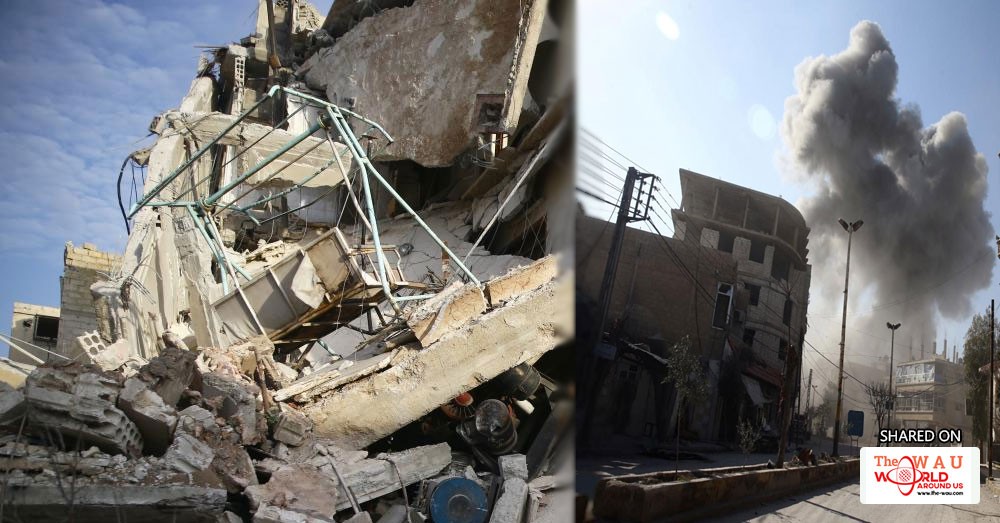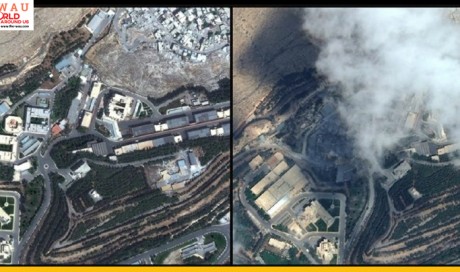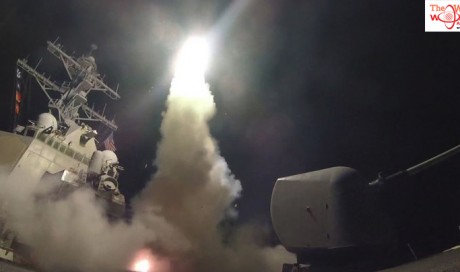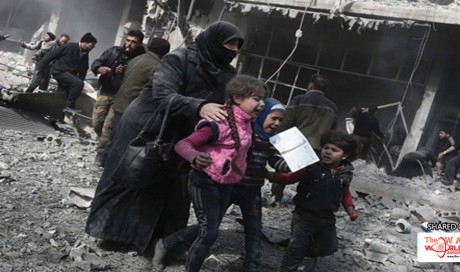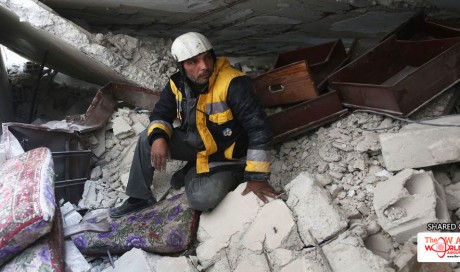For residents of Syria’s eastern Ghouta, five days of intense bombardment have imposed a new routine of terror in a district already tormented by years of siege.
A person inspects damaged building in the besieged town of Douma, Eastern Ghouta, Damascus, Syria February 20, 2018.
Syria’s civil war has long dictated the rhythms of daily life in eastern Ghouta, the largest area held by rebels near the capital Damascus, separating it from the outside world and limiting its access to fuel, electricity, food and medicines.
Since Sunday, heavy shelling, rocket fire and air strikes have also pounded the enclave, a bombardment that Syria’s government says is necessary to stop mortar attacks on Damascus.
The first warning often arrives on phones - connected to an intermittent local 3G network linked to the outside world by satellite - saying warplanes are in the sky.
Monitors on the edges of the enclave, particularly those in the north, near Dumeir military air base, keep watch and phone a warning system run by the civil defense. It sends out alerts via messaging apps that jets are minutes away.
On Thursday it started slowly, but by about 11 a.m. it was sending messages every few minutes.
By then, most people were in their shelters. Usually these are basements of existing buildings, buttressed by sandbags. But people have also dug their own beneath their houses or in narrow alleys. Those without cower on the ground floor of a house.
“In the shelter where I‘m sitting right now, there is a 12-volt battery to give power for a small light. Everyone who comes here brings a mattress and blanket. There is no running water, so the doctors warn about scabies and lice,” said Bilal Abu Salah.
His family shares its shelter with seven other families. The toilets are primitive, the ventilation bad, the smell unbearable, he said.
They lie or sit on foam mattresses, often in the dark. In some shelters, families have set up rudimentary internet connections. People try to sleep. Then the bombs fall.
FEAR
Mid-morning to midnight has been the period of heaviest bombardment every day this week.
“On Monday my house was hit,” said Mahmoud, a man Reuters contacted by voice message in the eastern Ghouta town of Hamouriyeh. Inside were his family of nine, including four children. He was at his neighbor’s house.
“I had the ordeal of pulling them all from the rubble. I lost control of myself and started yelling. Each time I pulled a child out I rejoiced, while still being filled with fear for the others,” he said. All his family survived but two children were injured.
The civil defense - widely known as the White Helmets - runs a rescue operation to help dig through the rubble and take the injured to hospital. They are especially vulnerable because they are out working during the most dangerous hours.
“Humanitarian staff and vehicles are being targeted. Four civil defense volunteers were killed since the start of this offensive,” said Siraj, a White Helmet worker.
The Syrian government denies targeting civilians and accuses the White Helmets of fabricating videos of its rescues, and of working with jihadist rebel groups, which the White Helmets deny.
Hospitals have been hit several times this week according to the United Nations. Inside, medics struggle with limited equipment and old stocks of medicines.
“We don’t have surgical thread any more. Seven ambulances have been damaged during the past four days. We don’t have analgesics, anaesthetics or antibiotics,” said Khaled, a volunteer first responder.
Another volunteer, Mohammed, said: “Medical staff have reached a level of physical and psychological stress that they can no longer endure.”
DAWN ACTIVITY
At around midnight the bombing slackens.
“After midnight people go up to their houses to fix anything that has been damaged or get things out of their destroyed homes. I check with my family on whether there is anything I need to get from outside,” said Moayad Hafi.
There are many jobs to do. “Young men go out to clear the streets of rubble so that ambulances will be able to move. It is impossible to do that by day,” said Mahmoud, the man in Hamouriyeh.
Dawn is the moment of most activity on the streets as people try to find rare open shops that still have food left to sell.
“My family eats anything they can find in the house or in the street,” said Hafi.
There is another task that is only performed between midnight and the morning arrival of the warplanes.
“The dead are put to rest in the early morning. Families do it themselves, stealthily so that reconnaissance planes won’t see them and bombard them,” said Mahmoud.
Share This Post

